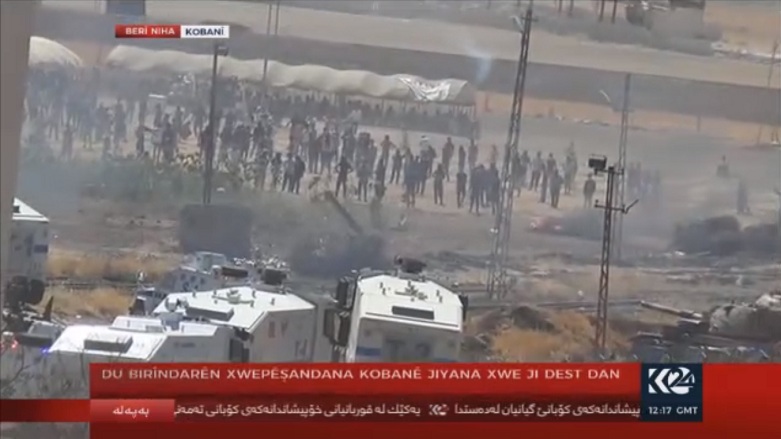Turkish soldiers killed, wounded 97 civilians on Kobani border

ERBIL, Kurdistan Region (Kurdistan24) - On Friday, Turkish soldiers killed at least two civilians and injured 95 on the Syrian Kurdistan (Rojava) border of Kobani, following the protest to Turkish construction of a wall on the border.
Kurdistan24 reporter Redwan Bezar in Kobani said that two civilians were injured by plastic bullets, 93 by tear gas bombs and two were killed after the Turkish army started to disperse the protesters.
One of the killed civilians Haji Nazo was a 17-year-old teenager and the other one was a 20-year-old, Ahmad Jumaa.
Protests have been ongoing for a week against the construction of a wall that would separate Kurdish territories inside Syria. On Friday, protests intensified and the situation escalated.
Kobani is about 35 kilometers (22 miles) east of the Syrian border town of Jarablus, the town that Turkey-backed rebels captured last week from the so-called Islamic State (IS).
Bezar stated that the construction of the wall has been temporarily halted after the protesters gathered in the area on Friday morning.
"We will not leave the area until the construction of the wall is completely cancelled," one of the protesters told Kurdistan24.
Anwar Musallim, an official from the council of Kobani, confirmed to Reuters that Turkish forces have used live ammunition as well as tear gas against the protestors.
According to the UK-based Syrian Observatory for Human Rights, a child had been killed and over 30 people injured.
"A group approached the border and attacked construction machinery, workers and soldiers on the border with stones. Tear gas and water cannon were used against them. There has been no incident of opening fire," a Turkish military source told Reuters.
Editing by Ava Homa
(Additional reporting by Redwan Bezar and Hisham Arafat)
